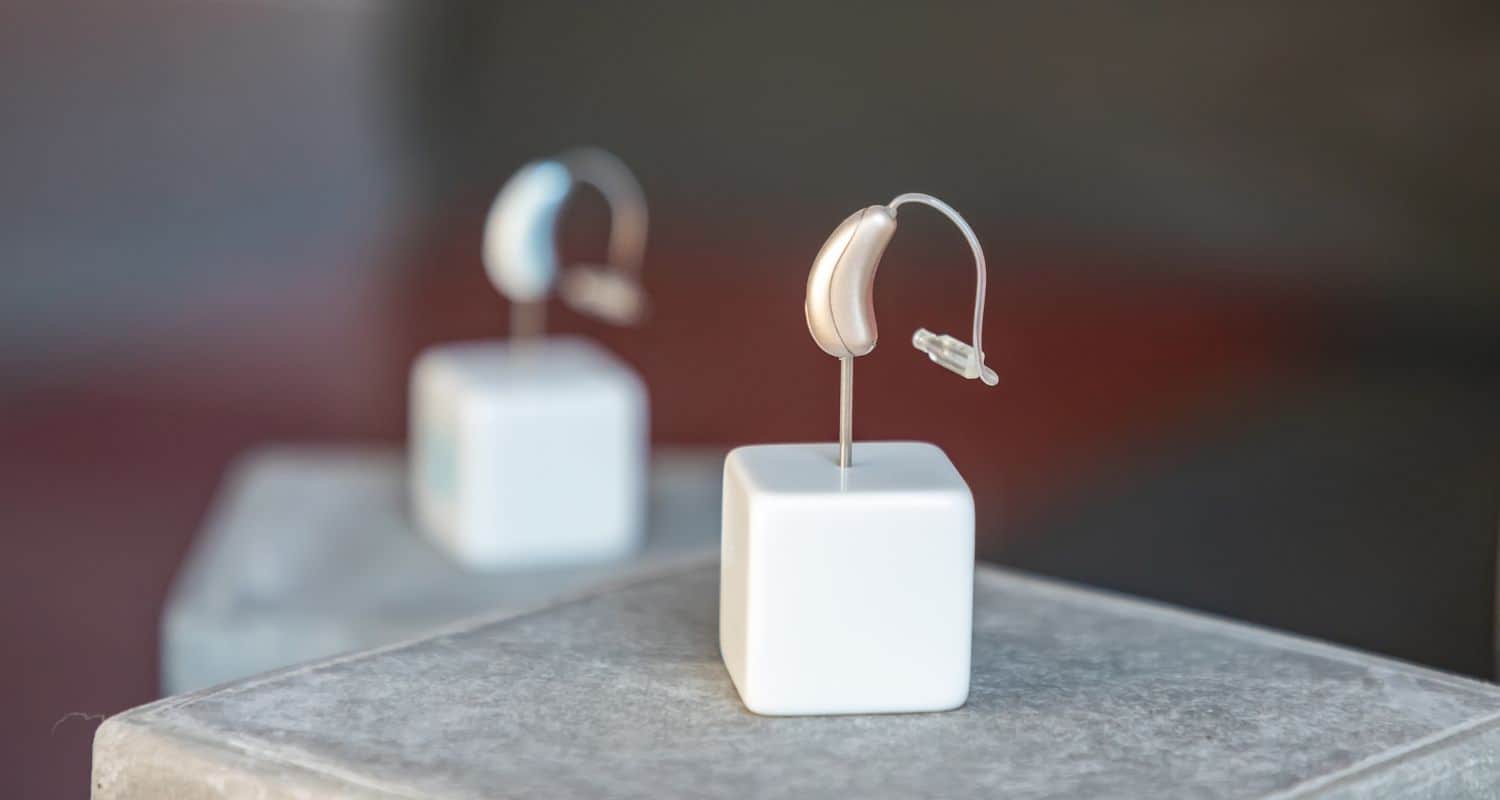
One question we frequently get is if one hearing aid can provide the same benefits as two hearing aids. While a single hearing aid can improve sound quality, it cannot do some of the more sophisticated assisting functions that a pair of hearing aids can.
It’s critical to understand how your hearing works and how to best support its natural functioning while selecting the best treatment options for your hearing loss.
Bilateral Hearing Loss
Hearing loss can manifest itself in various ways between your two ears. Hearing loss in only one ear is unilateral hearing loss, whereas hearing loss in both ears is referred to as bilateral hearing loss.
Even if you have bilateral hearing loss, your hearing capacity may differ between your two ears, and understanding speech from one side of your head may be more straightforward. Your hearing specialist will assess each ear’s performance separately and program your hearing aids to address each ear’s unique hearing issues.
Why one hearing aid is often not enough
Hearing loss treatment is an investment in your health, and we recognize that a single hearing aid may appear to be a quick fix for stress and communication problems caused by hearing loss. However, it’s critical to comprehend the limitations of treating bilateral hearing loss with a single hearing aid and why it’s not suggested.
In addition to receiving sound waves from air vibrations, having two ears serves a vital purpose. Our brain uses the lag between when sound is taken up by each ear to triangulate the sound’s source. This delicate ability enables you to quickly follow who is speaking in a discussion or get out of the way when danger is approaching. This notion of where the sound comes from has an unexpectedly significant impact on prioritizing sound inside our ears. We have problems focusing on specific crucial noises and following speech if we don’t have it.
In a bilateral hearing loss, there is a loss of capacity to perceive both the presence and direction of the sound. While single hearing aids can improve the spectrum of sounds detected in a single ear, they do not significantly improve your capacity to recognize the directionality of a sound. Therefore they fall short of the “natural” hearing experience.
Two hearing aids are better than one.
Treating your hearing loss with a pair of hearing aids is likely the most effective treatment if you have considerable bilateral hearing loss. Modern hearing aids include compact and sophisticated digital sound processing that can enhance the sound in subtle and customizable ways and detect and communicate the little sound lag between ears, allowing you to regain a sensation of sound directionality.
Hearing loss affects both ears with bilateral hearing loss, and a pair of hearing aids can be used to compensate for each ear’s unique hearing loss. Using a set of hearing aids allows you to hear the sound more balanced. Hearing becomes unduly reliant on a single side of the head while using a single hearing aid, and it does not help with directional hearing or sound prioritizing.
To best simulate the sense of natural, undamaged hearing, a pair of hearing aids uses digitally calibrated sound enhancement. While most hearing loss is irreversible, a pair of hearing aids can help you hear better and more clearly. Hearing devices help alleviate the frustration, stress, and health risks associated with untreated hearing loss, with a pair of hearing aids outperforming a single device by a wide margin.
Treatment is important
Hearing loss is severe, and if left untreated, it can affect our lives for the rest of our lives. Hearing loss that goes untreated can lead to communication issues and a decline in quality of life. Hearing loss that is not treated can lead to various health issues, including decreased cognitive performance and falls.
The sooner you manage hearing loss, the easier it will be to adjust to, and the less influence it will have on your overall health. However, addressing hearing loss at any time offers significant advantages. If you suffer from hearing loss, now is the time to take action.
